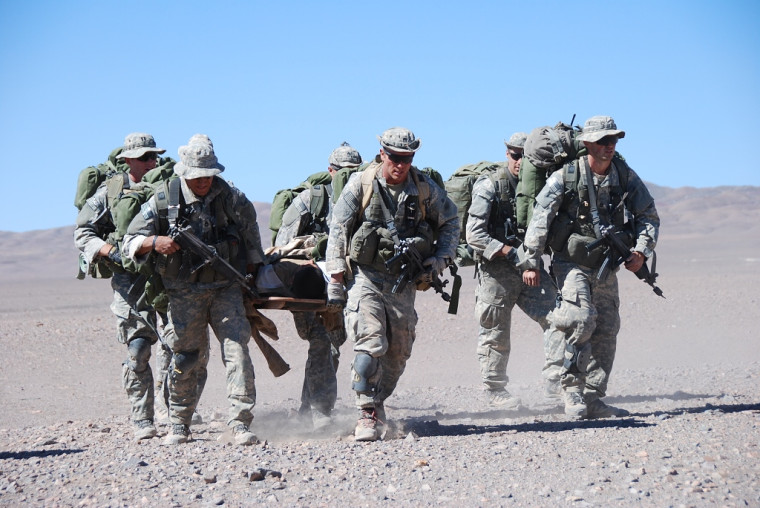The U.S. Army Ranger School has been in the news after enrolling its first-ever group of women. The trial enrollment has drawn sharp opinions on both sides, but it’s also highlighted the rigors of what’s been called one of the world’s toughest and best leadership programs.

If you think your MBA school or corporate training was hard, imagine a program where only about half of those who enroll go on to graduate, and a third of those do so only after repeating all or part of the course.
Ranger School sets two months of leadership training in a context of brutal mental and physical hardship, much of it with one meal a day and very little sleep. Students train in grueling environments that include the remote north Georgia mountains and Florida swamps, logging an estimated 200 foot patrol miles while carrying 65 to 90 pounds of equipment and weapons.
The exhaustion and hardship of training are preparation for the exhaustion and hardship of combat, where the effectiveness of their leadership can literally mean life or death for themselves and their troops.
Of course, most of us will never have to face such an extreme situation. But we can all make our leadership more effective by adopting some of the principles of Ranger School.
- First, it’s rarely discussed as an aspect of leadership, but keeping yourself as healthy and fit as possible improves your effectiveness across the board. You have better energy, stamina and confidence, and you’re physically prepared to tackle any stresses and hardships that the day may bring.
- Second, overtrain and drill. What fast-moving situations are you and your team most likely to face? Make a plan—and if circumstances permit, do a walkthrough. Build a base of experience and processes so people are prepared to respond to a breaking opportunity or problem.
- Finally, check yourself against these leadership principles adapted from the Ranger Handbook:
Be proficient, courageous, committed and candid. Lead with integrity. Understand the principles of leadership, yourself, and your team.
Always work to develop your strengths and overcome your weaknesses. Take full responsibility for your actions and decisions; accept fair criticism and use it as a basis for improvement.
Seek out and take advantage of opportunities that will advance your mission. Take initiative and be resourceful. Assess new situations quickly and gather the information you need to make sound and timely decisions.
Teach and challenge your team; make sure they understand what is expected of them and have the information and resources they need. Build their technical capability with training and delegation, and build their motivation and confidence by fostering a strong team spirit. Be a role model; share in any dangers and hardships that your team may face.
Few of us are cut out to be Rangers, but we can all go the distance in preparing ourselves for the work in front of us and commit to the best leadership we’re capable of providing.
{Image Credit: }
